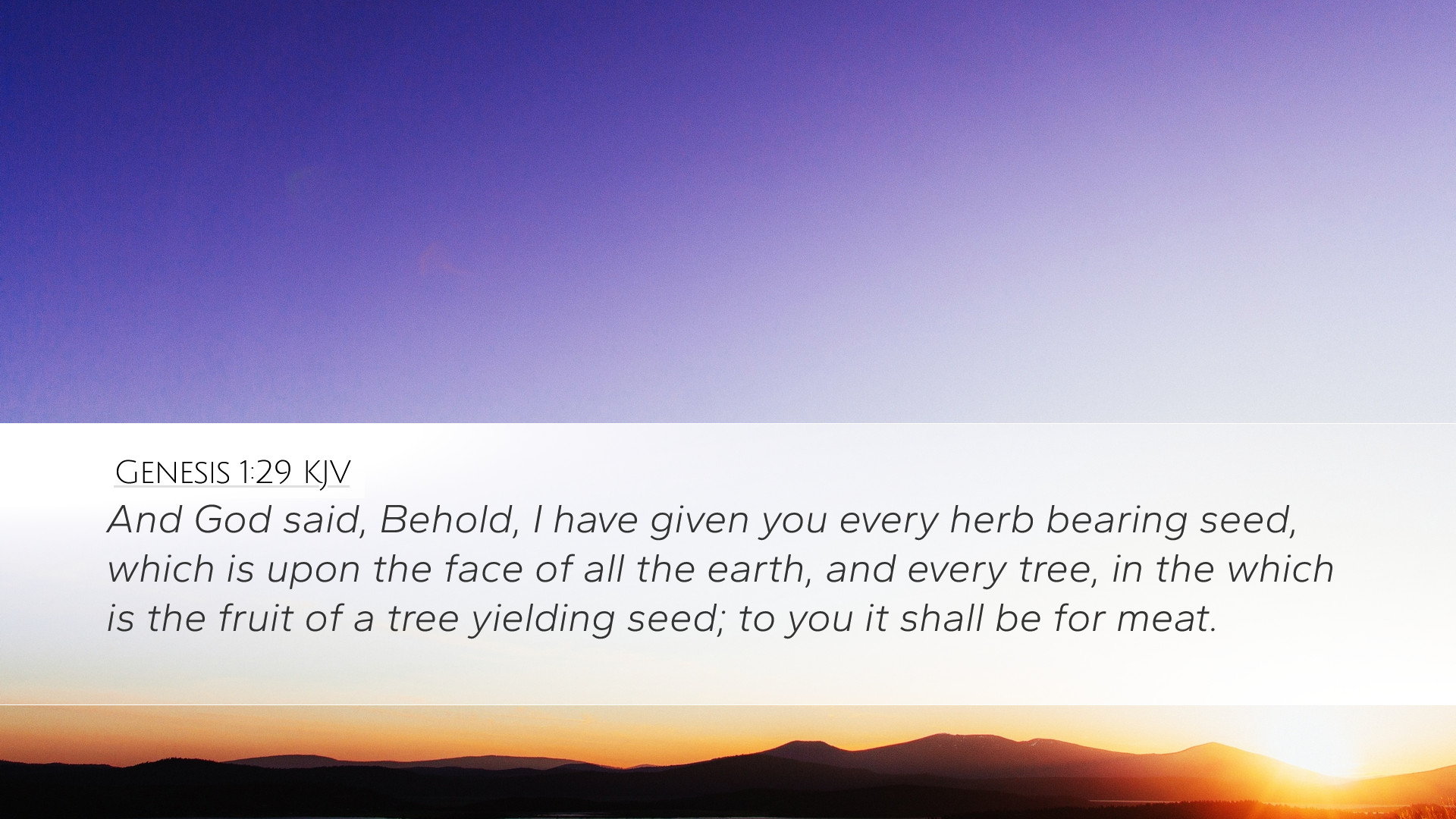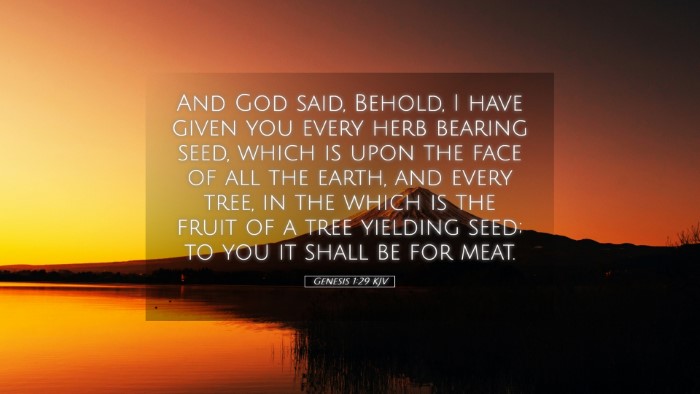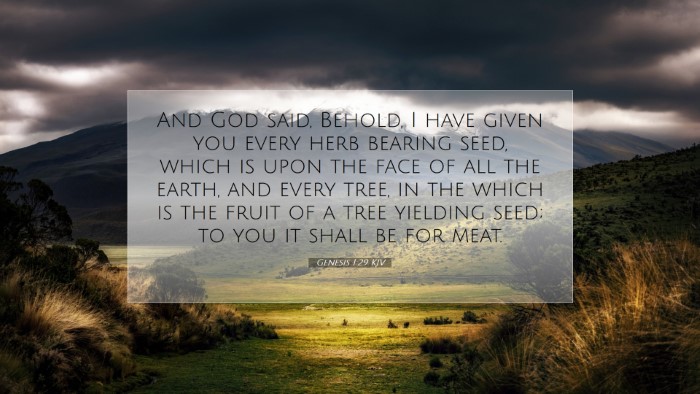Commentary on Genesis 1:29
Verse: "And God said, Behold, I have given you every herb bearing seed, which is upon the face of all the earth, and every tree, in the which is the fruit of a tree yielding seed; to you it shall be for meat."
Introduction
Genesis 1:29 marks a significant point in the creation narrative, reflecting God's provision for humanity as well as His sovereignty over creation. This verse provides insight into God's intentions for human sustenance, establishing a paradigm for stewardship of the earth.
Divine Provision
In this verse, God openly declares His provision for humans, offering them sustenance in the form of plants and fruits. Matthew Henry emphasizes that this provision is not merely for survival but is a blessing designed to ensure abundance and variety in the diet of humankind.
- Every Herb Bearing Seed: This phrase highlights the natural bounty available to humanity. Albert Barnes notes that herbs, which bear seed, indicate the natural way in which God designed sustenance to multiply and replenish the earth.
- All the Earth: The mention of "all the earth" signifies the universality of God’s provision. Adam Clarke elaborates on this, explaining that God bestowed such gifts not just for the individual but for the collective benefit of all humanity.
Nature of Food
The specific mention of "herb" and "fruit" serves to establish the nature of food God provides. These foods are wholesome and life-giving, a contrast to the later introduction of meat consumption. This dietary principle reflects God’s design for health and sustenance.
- Health and Well-being: Henry points out that the initial diet, based solely on plants, emphasized a healthy lifestyle, which is pertinent for theological discussion on health and diet in modern contexts.
- Yielding Seed: The phrase "yielding seed" is significant for continuity in creation. Barnes comments that this divine order ensures that food will regenerate, enabling humanity to thrive throughout generations.
Theological Implications
This verse prompts reflection on the relationship between God, humanity, and the environment:
- Stewardship: The responsibility bestowed upon humanity signifies a call to stewardship. Clarke asserts that humans are caretakers of God's creation, with an obligation to manage and nurture the provision given.
- God as Provider: The verse also highlights God's role as the ultimate provider. It leads to theological discussions around Providence, emphasizing that God’s provision is comprehensive and intentional.
Contextual Insights
Understanding the context of Genesis 1:29 is crucial for deeper interpretation. This verse occurs within a litany of creation affirmations, each concluded with "And God saw that it was good." Thus, this proclamation of sustenance must be seen as part of God's good creation.
- Creation Narrative: The creation narrative sets the stage for understanding humanity’s role not just as consumers but as part of a designed ecological balance.
- Contrast with Fall: Later biblical texts indicate a shift in dietary laws and practices post-fall (Genesis 3). This initial Edenic diet invites contemplation on themes of redemption and restoration.
Conclusion
Genesis 1:29 invites readers into a rich theological reflection on God’s provision and the human responsibility to engage with it faithfully. The insights from commentaries provide a multifaceted view of this verse, encouraging deeper understanding among pastors, students, theologians, and scholars.


